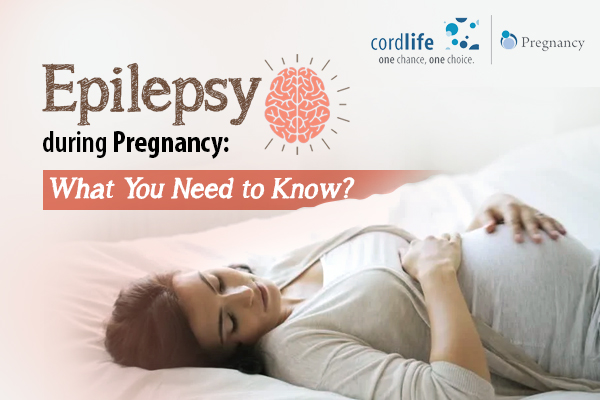Table of Contents
Epilepsy is a neurological disorder in which the working of the nerve cell is disturbed leading to mild to severe seizures. Epilepsy in pregnancy can be worrisome. But, most women who have epilepsy during pregnancy are able to deliver healthy babies. You will need some extra care and assistance during your pregnancy. There are certain risks involved if you are epileptic.
Causes of Seizures During Pregnancy
Epilepsy pregnancy risks are not the same for all women. While some epileptic women may see reduced instances of seizures during pregnancy. And others may have to battle it more frequently than before. Usually, increased frequency is noticed in the first trimester. The main causes of seizures in pregnancy are hormonal changes, retention of water, sodium retention, lack of sleep, and stress.
Epilepsy Medication
Medicines that you take during pregnancy can affect your baby. Epilepsy drugs in pregnancy are believed to cause diseases such as cleft palate, spina bifida, skeletal abnormalities, neural tube defects, urinary tract defects, and congenital heart diseases in newborns.
Epilepsy anti-seizure medication can also affect your child’s brain development. Your baby may suffer from a delay in speech development, attention deficit, and memory issues if you take epilepsy medication during pregnancy.

Symptoms of Epilepsy During Pregnancy
Epilepsy seizures are the primary symptom. Epilepsy seizures can be both partial and generalized. Partial seizures can affect certain body parts but generalized seizures can cause loss of consciousness and a fall. The signs and symptoms of epilepsy seizures include:
- Fainting
- Falling down
- Headache
- Mood swings
- Confusion
- Dizziness
- Memory loss
- Biting the tongue
- No blinking of eyelids
- Repeated blinking of eyelids
- Nausea
- Vomiting
Epilepsy Pregnancy Risks
Seizures and convulsions during pregnancy are risky for both you and your child. Partial seizures are less risky but they can lead to generalised seizures. The main risks of epilepsy seizures are:
- Falling on the stomach causes trauma to the fetus
- Falling down the stairs and hurting yourself and the fetus
- Miscarriage
- Premature labour
- Preterm birth
- Heart distress in the foetus
- Slowing down of the foetal heart rate
- Reduces oxygen supply to the foetus
- Foetal injury
- Premature separation of the placenta from the uterus
- Miscarriage due to a trauma
Apart from the above-mentioned issues, there are also some other epilepsy side effects. The other complications include:
- Hypertension
- Preeclampsia
- Stillbirth
- Neural tube defects
- Reduced levels of vitamin D
- Lack of vitamin K causes severe bleeding in the newborn
- Breastfeeding issues
- Sleepy or drowsy babies due to epilepsy medications
Treatment of Epilepsy During Pregnancy
The main focus of epilepsy treatment during pregnancy is to manage seizures. Your doctor will also prescribe you folic acid to reduce the risk of neural birth defects in your baby.
Folic Acid
You will need to start taking folic acid even before you get pregnant. Your doctor will ask you to start taking folic acid whenever you start planning. Ideally, you should start taking three months before you conceive. If you are taking epilepsy medication you will need to take 5 milligrams of folic acid daily from the day you start trying to get pregnant. If you become pregnant unplanned then start taking 400 micrograms straight away before you visit your doctor. Folic acid helps to prevent neural tube defects and other abnormalities of the brain and spine. As your seizure medicine can cause neural defects and spina bifida. Your doctor will prescribe you a high dose of folic acid as preventive medicine.
AED
Antiepileptic drugs (AED) will be reduced and controlled during pregnancy. If you have been seizure-free for a while then chances are high that you will experience no seizures during pregnancy. Your doctor will prescribe you the safest medicines in small dosages. Your pregnancy team of doctors will include a neurologist who will monitor you from time to time.
Labour and Delivery
Most epileptic women are capable of delivering vaginally. Seizures usually do not occur during labour and delivery. However, if you get a seizure, your doctor will inject you with intravenous medicines. However, if your seizure is prolonged then your doctor may decide to perform a C-section delivery.
Most epileptic women are encouraged to breastfeed. Even if you are on anti-seizure medications, there is no harm in breastfeeding.
